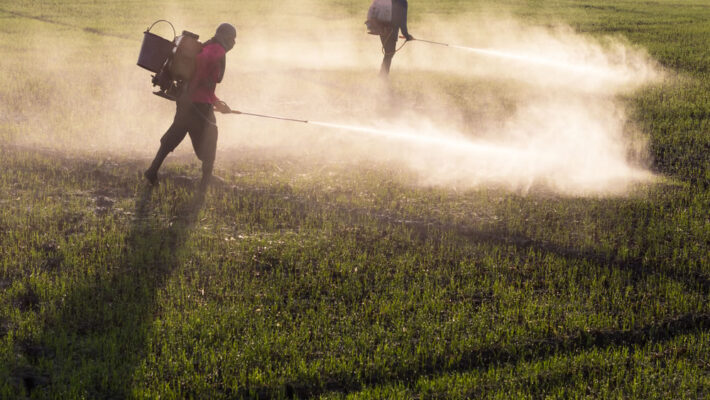
The Harmful Effects of Glyphosate
Glyphosate is found in many popular foods, including a wide range of cookies, crackers, cold cereals, and even those that are labeled as “organic”. Glyphosate drift appears to be a bigger problem than anyone might think. If glyphosate-treated crops are near to organic crops, the glyphosate can drift during aerial spraying, thus contaminating the organic crops. Unfortunately, many foods contain glyphosate residue today. Glyphosate has been shown to cause a number of short- and long-term health problems.
What Is Glyphosate?
- Glyphosate is an herbicide that is commonly used to kill weeds and grasses that compete with food crops.
- It was originally registered by Monsanto for use in the United States in 1974 under the trade name Roundup®.
- Today, glyphosate is one of the most widely used herbicides in the United States.
- There are growing concerns around the globe about the safety of glyphosate. Thus far, most of Argentina cities, Austria, Belgium, Bermuda, Bulgaria, 8 out of 10 provinces of Canada, Columbia, Denmark, France, Germany, Greece, Hungary, India, Ireland, Japan, Latvia, Luxembourg, Madeira, New Zealand, Netherlands, Peru, Portugal, South Australia, Scotland, Sri Lanka, and Switzerland have banned Monsanto.
How Does Glyphosate Work?
- Glyphosate prevents plants from creating proteins that are essential for growth.
- It blocks the shikimic acid pathway, an enzyme pathway that is necessary for plants and microorganisms to grow.
- Glyphosate is a non-selective herbicide, and as such, has been shown to kill most plants.
- Glyphosate kills the “weeds” (good bacteria) in the human microbiome which may lead to dysbiosis.
Is Glyphosate Dangerous?
- According to the National Pesticide Information Center (NPIC), at least 750 products for sale in the United States contain glyphosate.
- Products that contain glyphosate have been shown to cause eye and skin irritation.
- If an individual breathes in glyphosate from spray products, he or she may experience nose and throat irritation.
- In addition, consuming products that contain glyphosate may result in increased saliva, burning in the mouth and throat, vomiting, nausea, and diarrhea.
- The NPIC also notes fatalities have been reported in cases of intentional ingestion of glyphosate.
Does Bovine Colostrum Contain Glyphosate?
- Pasture-raised cows are less likely to have glyphosate residue in their colostrum, compared to cows that are fed grains and processed feed (i.e., from feed lots).
- Colostrum-LD® from Sovereign Laboratories is sourced from pasture-raised Grade A dairy cows. Every effort is made to treat the cows humanely and not feed them anything unhealthy. They are not given routine antibiotics and not supplemented with rBST (synthetic growth hormone).
Conclusion
All bovine colostrum supplements are not created equal – in terms of efficacy and safety. With Colostrum-LD®, individuals can enjoy a colostrum product that contains verified quantities of growth and immune factors necessary for optimal health. Plus, Colostrum-LD® can be consumed safely in any quantity by both people and pets.
This article was brought to you by Sovereign Laboratories, a world leader in the development of liposomal delivery to maximize the bioavailability of our dietary supplements.Sources:
http://npic.orst.edu/factsheets/glyphogen.html
http://www.ecowatch.com/monsanto-glyphosate-cheerios-2093130379.html
Please Note: “Monsanto” and “RoundUp” are registered trademarks of Monsanto Technology LLC, used without permission.



